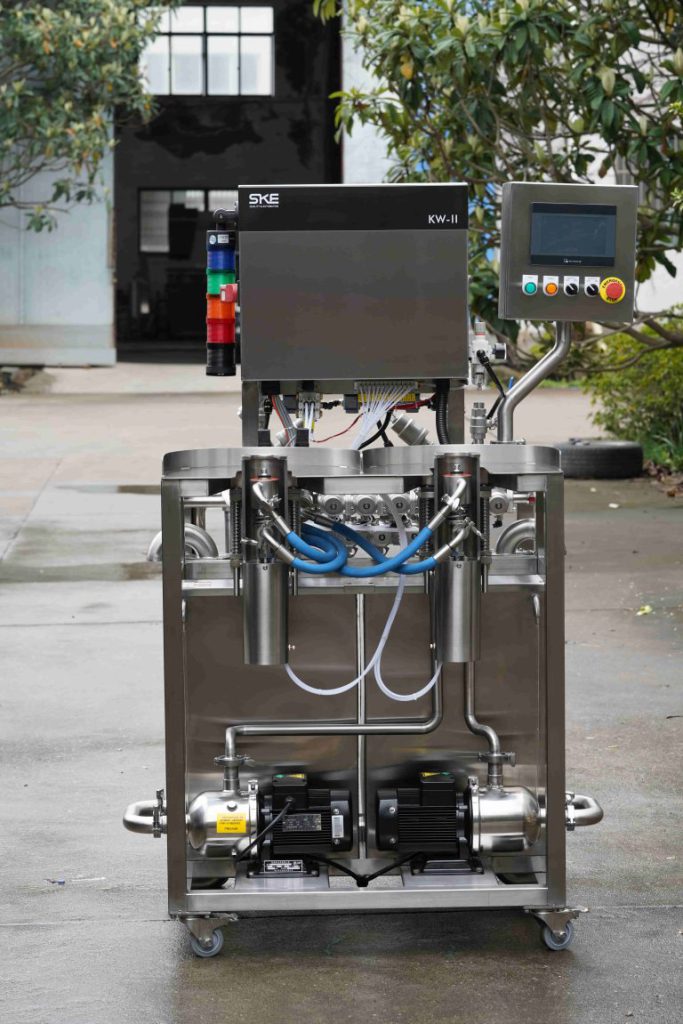Introduction

In the bustling world of brewery operations, efficiency is key. Among the numerous tools and technologies employed, beer keg washers play a crucial role in maintaining cleanliness, ensuring quality, and streamlining production processes. This blog delves into the significant impact that beer keg washers have on brewery production, exploring their benefits, challenges, and overall influence on the industry.
Understanding Beer Keg Washers
Beer keg washers are specialized machines designed to clean and sanitize kegs efficiently. These machines automate the cleaning process, eliminating manual labor and ensuring consistency in cleanliness standards. Typically, a Beer barrel cleaning machine comprises several stages, including pre-rinse, detergent wash, sanitization, and drying. This systematic approach guarantees thorough cleaning, removing any residues or contaminants that may affect the quality of the beer.
Benefits of Beer Keg Washers
- Improved Efficiency: By automating the cleaning process, Beer barrel cleaning machines significantly enhance efficiency in brewery operations. Brewers can clean multiple kegs simultaneously, reducing downtime and increasing overall productivity.
- Consistency in Quality: Maintaining consistent cleanliness is essential for ensuring the quality and flavor of the beer. Beer keg washers adhere to standardized cleaning procedures, minimizing the risk of contamination and preserving the integrity of the product.
- Cost Savings: While the initial investment in Beer barrel cleaning machines may seem significant, their long-term benefits outweigh the costs. By reducing manual labor, water consumption, and chemical usage, breweries can achieve substantial cost savings over time.
- Enhanced Safety: Proper sanitation is paramount in the brewing industry to prevent microbial growth and ensure consumer safety. Beer barrel cleaning machines employ high-temperature water and sanitizing agents to eliminate bacteria and pathogens, reducing the risk of product spoilage and contamination.
Challenges and Considerations
While beer keg washers offer numerous benefits, breweries must address certain challenges to maximize their effectiveness:
- Maintenance Requirements: Regular maintenance is crucial to keep beer keg washers operating at peak performance. This includes cleaning filters, inspecting components, and replacing worn parts to prevent breakdowns and ensure consistent cleaning results.
- Compatibility with Keg Types: Different breweries may use various types and sizes of kegs, requiring flexibility in beer barrel cleaning machine designs. Ensuring compatibility with diverse keg specifications is essential to accommodate the needs of different brewery setups.
- Water and Energy Consumption: Despite their efficiency, beer keg washers consume water and energy during operation. Breweries should explore ways to optimize resource usage, such as recycling water or investing in energy-efficient models, to minimize environmental impact and operational costs.
Case Study: Impact on Golden Grain Brewery

To illustrate the tangible benefits of beer barrel cleaning machines, let’s examine the case of Golden Grain Brewery. By implementing state-of-the-art keg washing equipment, Golden Grain Brewery experienced:
| Metric | Before Implementation | After Implementation |
|---|---|---|
| Keg Cleaning Time | 10 minutes per keg | 5 minutes per keg |
| Production Capacity | 100 kegs per day | 200 kegs per day |
| Water Consumption | 5 gallons per keg | 3 gallons per keg |
| Labor Costs | High | Reduced |
Conclusion
Beer keg washers play a vital role in modern brewery operations, offering improved efficiency, consistency in quality, and cost savings. While challenges such as maintenance requirements and resource consumption exist, the benefits far outweigh the drawbacks. By investing in advanced keg washing technology and implementing best practices, breweries can optimize their production processes, deliver high-quality beer, and stay competitive in the market.
FAQ
Q:How often should beer keg washers be cleaned and maintained?
A:Beer keg washers should undergo regular cleaning and maintenance according to the manufacturer’s recommendations. This typically involves daily cleaning routines and periodic inspections to ensure optimal performance.
Q:Are beer barrel cleaning machines compatible with all types of kegs?
A:While most beer barrel cleaning machines are designed to accommodate standard keg sizes, compatibility may vary depending on the specific model and manufacturer. It’s essential to verify compatibility with your keg specifications before purchasing or installing a beer keg washer.
Q:Do beer keg washers consume a lot of water and energy?
A:While beer keg washers do require water and energy for operation, modern models are designed to optimize resource usage and minimize environmental impact. Breweries can further reduce consumption by implementing water recycling systems and energy-efficient practices.
Q:Can beer barrel cleaning machineashers sanitize effectively?
A:Yes, beer barrel cleaning machines are equipped with sanitization stages that use high-temperature water and sanitizing agents to eliminate bacteria and pathogens effectively. Proper sanitization is essential for ensuring the safety and quality of the beer.
Q:What are the potential cost savings associated with beer keg washers?
A:By automating the cleaning process, reducing labor costs, and optimizing resource usage, breweries can achieve significant cost savings over time with beer keg washers. Additionally, the improved efficiency and consistency in quality can lead to higher customer satisfaction and increased sales.

